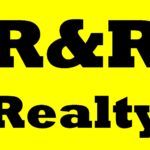I got thinking last night about IF a pole barn on a property in the western residential communities of Palm Beach would qualify for an agricultural exemption to the building code. This brochure from the county talks about when a permit is, is not, or may not be required. In this they note the agricultural exemption found in the Florida Statute…

And they discuss it at length in PZB-PPM-MD-RI-002
The intent of this section of the statute goes back many years. Florida is a huge agricultural state and as such the legislature, and by extension the building codes, have historically recognized that a farmer should not need a permit to build say a chicken coop (poultry barn) on his farm. It may be greater than 6 foot by 6 foot but its still just a chicken coop. The allowed non residential structures are now broader in definition that this but this is the basics of it. However, if there is power, water or sewer run to the structure then that would require a permit (even if the building did not) and the improvements must comply with local zoning ordinance for setbacks and the like. For the exemption to the building code to be POSSIBLE though the property must be zoned for and have an agricultural use and tax exemption legally in place and this is where the question comes in for communities like Caloosa, Jupiter Farms and Palm Beach Country Estates. All of these have an AR or Agricultural Residential zoning so agricultural uses are allowed BUT it must be actually used for a “bona fide agricultural purposes” and “good faith commercial agricultural use of the land.” The statute requires that the use must comply with the definition found in FS 193.461 which is the section that defines these uses so as to qualify for the agricultural exemption for a reduction in the taxable value of the property. The typical equestrian use does NOT qualify for the agricultural exception for real estate tax purposes but if there is boarding or breeding horses or another agricultural use on the property then this MAY qualify but it must be a commercial use complete with leases for boarding multiple horses, or a registered stud for breeding. And one must have all the required health and occupational licenses. So, the first check should be of PAPA and if the property has a AG tax exemption on the taxable value. If it does then great as P&Z will take this to be that it will qualify for the exemption. If not then one must prove that there is an on going legal agricultural business at the property that qualifies. BUT be ready to be turned down. The norm for most regular folks reading this is that one will need a building permit for a pole barn or even a stable in the absence of an agricultural tax exemption.


